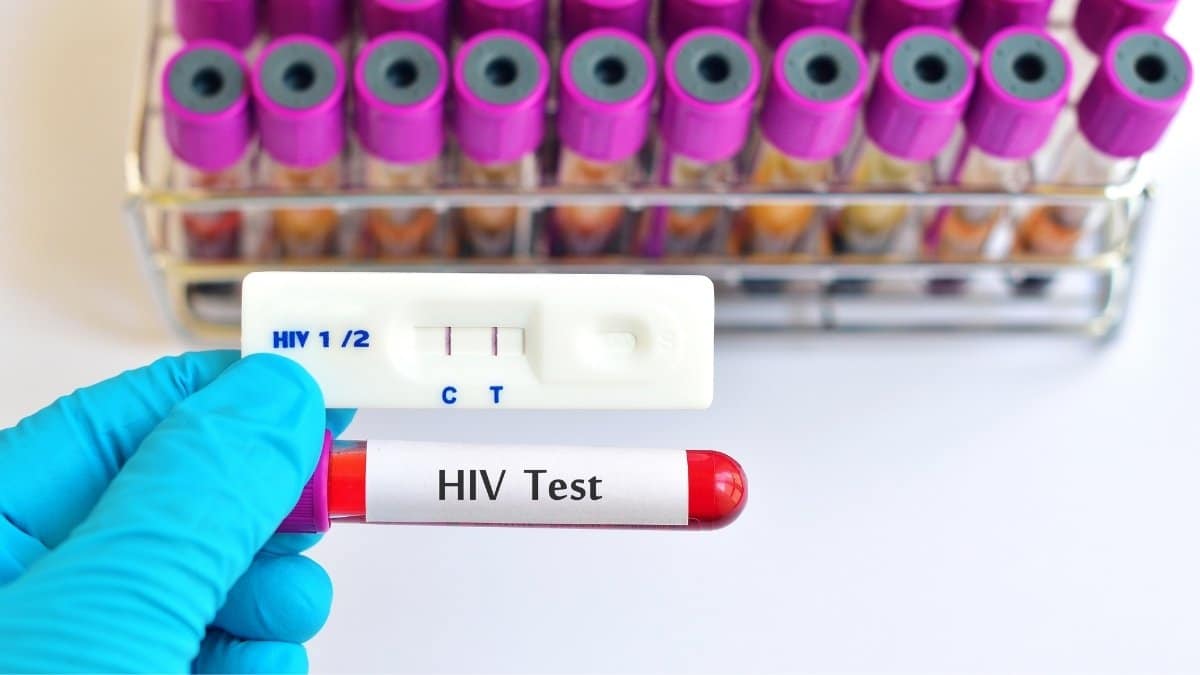HIV (Human Immunodeficiency Virus) is a virus that attacks your immune system (your body’s natural defence mechanism). Without a strong immune system, your body won’t be able to combat the disease. Both the virus and the infection it causes are called HIV.
You can prevent HIV only through an informed, holistic approach that allows you to understand more about the disease and the best preventive measures.
What Is Usually The First Sign Of HIV?
Before discussing how to prevent HIV, let us first know what is usually the first sign of HIV. Knowing this will allow you to detect and treat the condition while it’s still in its early stages.
Stage 1: Flu
The first signs of HIV are the flu-like symptoms, which primarily start around 2 – 4 weeks after getting infected with the virus. This is called stage 1 (acute HIV infection) and can cause some of the following symptoms:
- Fever
- Rash
- Swollen glands
- Sore throat
- Headache
- Muscle pain
- Upset stomach
- Joint aches and pains
Stage 2: Chronic HIV Infection
In this stage, the virus multiplies in your body at a low level and you may not experience any symptoms at all. Without treatment, you can remain in this stage for around 10 – 15 years. However, the virus remains active during this stage.
Stage 3: Acquired Immunodeficiency Syndrome (AIDS)
HIV, when left untreated, can lead to AIDS which can weaken your immune system, causing several opportunistic diseases. The common symptoms include:
- Recurring fever
- Unexplained weight loss
- Getting fatigued easily
- Sore in the mouth, genitals, or anus
- Diarrhoea that persists for more than a week
- Prolonged swelling of the lymph glands in the groin, neck, or armpits
- Memory loss
- Depression
- Night sweats
- Pneumonia
- Bruises or bleeding due to an unknown reason
- Purple spots on the skin that don’t go away
How To Prevent HIV?
Consider the following ways for HIV prevention:
1. Know your risks
When it comes to HIV prevention, most people have questions regarding what can infect them?
Still, there are a lot of misconceptions about HIV transmission. You should refer to trustable resources to know the facts, understand the modes of transmission, and the activities which can elevate your chances of getting infected.
2. Take HIV prevention medicine
If you are HIV negative, you might be able to take pre-exposure prophylaxis (PrEP) medication to minimize your odds of contracting the virus.
PrEP is especially recommended for those people who are at significant risk for HIV – for instance, those whose partner is HIV positive.
It is available in tablet form; you need to take one pill before having sex and are exposed to HIV. Talk to your doctor if taking the medication would be appropriate for you.
3. Remain undetectable
Treatment as Evidence (TasP) is an evidence-based strategy used to prevent HIV transmission. If you are HIV positive, your doctor will prescribe a medication that you need to take daily to get and keep an undetectable viral load. People who take the medication sincerely as prescribed have effectively no risk of sexually transmitting HIV to their HIV-negative partner.
4. Use condoms
Condoms are really effective in preventing HIV and other sexually transmitted infections (STIs). It can be used in vaginal, and anal sex, and also for oral sex performed in men.
Both male and female condoms are available in the market. They come in a wide range of materials, flavours, colours, and textures. Choose the one that matches your and your partner’s expectations.
HIV can be transmitted before ejaculation and vaginal secretions, and from the anus. So it becomes essential to put on the condoms before any sexual contact that occurs between the penis, vagina, anus, or mouth.
5. Conceive safely
About half of all HIV-affected couples are serodiscordant, which means one partner is HIV-positive while the other is HIV-negative.
Make use of PrEP and TasP effectively to conceive while minimizing the risk of transmitting the virus.
6. Use lubricants
Lubricants are generally used to improve sexual pleasure and safety by adding moisture to the vagina or anus during sex.
Lubricants reduce the risk of vaginal and anal tears caused by friction or dryness and make sex safer. They can also prevent the tearing of condoms during sexual activity.
Note that only water-based lubricants should be utilized with condoms and not oil-based lubricants. Oil-based lubricants can make the latex in condoms weak, causing them to break easily.
Check Out A Wide Range of Generic Viagra: Sildenafil Citrate(Cenforce), Tadalafil(Vidalista), Vardenafil(Vilitra).
7. Avoid sharing needles and injecting equipment
If you inject medications, this could expose you to HIV and other viruses found in the bloodstream. It’s important that you don’t share your needles, syringes, and other injecting equipment including swabs, spoons, or liquids used to dilute the drugs.
If you are having a piercing or tattoo, ensure that a clean, sterilized needle is always used.
8. Avoid mother-to-child transmission
Get tested for HIV as soon as possible. The earlier HIV is detected and treated, the more effectively the HIV prevention medications will prevent transmission to your baby.
If you and your partner engage in some activities that can increase your risk of getting infected with HIV, get tested again in your third trimester. You should also insist your partner get tested for HIV to ensure you both are safe.
Conclusion
If you test positive for HIV, inform your sexual partners immediately so that they can get tested and know their status. No matter how careful you’re to not transmit the virus, you need to be honest with your partner to minimize the risk of transmission.










